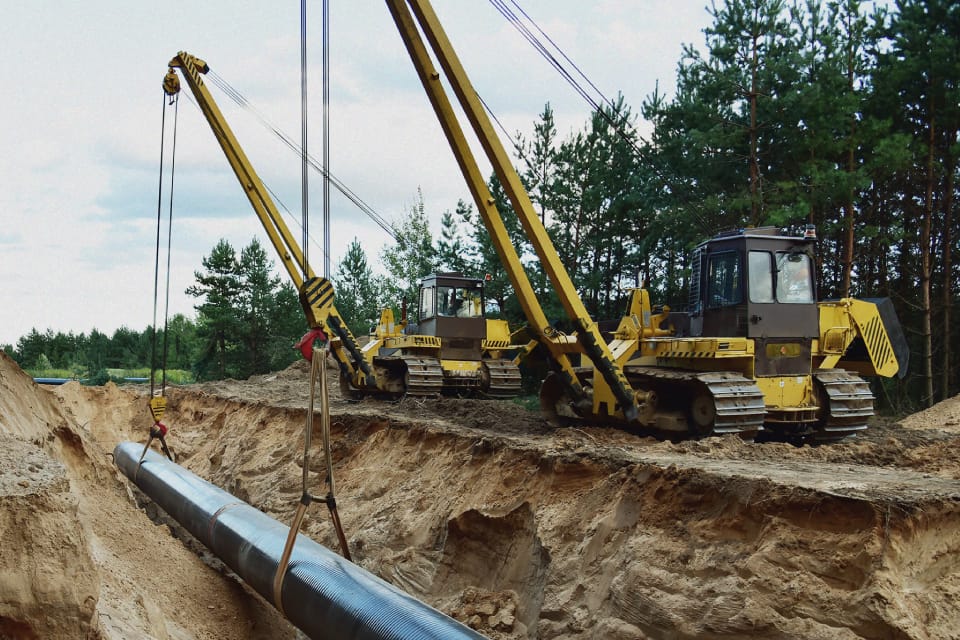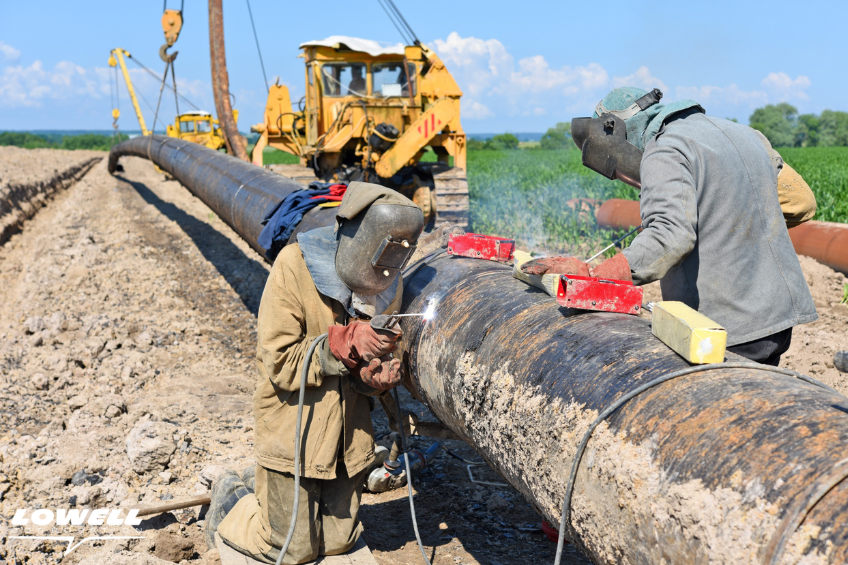A Comprehensive Overview to Recognizing Pipes and Their Duty in Building
Pipes are essential elements in construction, offering vital features in gas, water, and waste administration. Their choice and application can considerably affect a structure's effectiveness and safety. Different materials, such as PVC, copper, and PEX, provide distinct benefits matched to details demands (Creek Pipe Company LLC). Understanding these aspects is crucial for any kind of building and construction task. As one discovers the details of pipelines, the ramifications for conformity and public wellness ended up being increasingly evident
The Significance of Piping in Building
Pipes serve as essential conduits in building, promoting the motion of water, gas, and waste throughout buildings and framework. Their role extends past mere transport; they are essential for ensuring the capability and security of domestic and industrial atmospheres. Properly set up pipes add to the reliable circulation of sources, making it possible for everyday activities such as heating, showering, and cooking. Pipes play a critical role in waste monitoring, making certain that sewage and wastewater are properly gotten rid of from living spaces.The relevance of pipes is likewise mirrored in their influence on public health and wellness. Poor or damaged piping systems can result in contamination and dangerous conditions, making high quality products and setup techniques crucial. In addition, pipelines have to abide with different building ordinance and regulations, which are designed to protect both owners and the setting. Consequently, the value of pipelines in construction includes both functional capability and important health factors to consider.
Kinds Of Pipeline Used in Building Jobs
Different sorts of pipes play a substantial duty in building jobs, each developed to fulfill details requirements and applications. Amongst one of the most frequently utilized pipe kinds are PVC, which is immune and lightweight to corrosion, making it suitable for drain and air vent systems. CPVC pipelines, similar to PVC, can hold up against greater temperatures, often utilized in hot water systems. Copper pipelines are recognized for their durability and reliability, often utilized in plumbing and home heating applications. Galvanized steel pipes, while much less typical today, were once a criterion for water system lines because of their toughness. In Addition, PEX (cross-linked polyethylene) pipes are acquiring appeal for domestic plumbing as a result of their adaptability and resistance to scaling and chlorine. Cast iron pipelines are preferred for their sound-dampening buildings, typically used in waste and dirt systems. Each pipeline kind serves distinctive functions, ensuring effective procedure in building and construction jobs.
Typical Materials for Water Lines and Their Quality
In building and construction, the option of pipe materials is important for guaranteeing longevity and functionality. Steel pipes offer strength and resistance to high pressures, while plastic pipelines give lightweight and corrosion-resistant alternatives. Composite pipelines combine the advantages of both materials, making them versatile alternatives for numerous applications.
Steel Pipe Options
Steel pipelines are important components in building and construction, providing a variety of alternatives that satisfy ecological problems and different applications. One of the most common materials consist of steel, copper, and cast iron. Steel pipelines are known for their stamina and resilience, making them appropriate for high-pressure applications. Copper pipelines are favored for their rust resistance and antimicrobial residential properties, usually made use of in pipes systems. Cast iron pipelines supply excellent sound insulation and are excellent for waste and drain systems. Each metal type has unique advantages; as an example, galvanized steel can resist corrosion, while stainless steel provides exceptional deterioration resistance. Choosing the appropriate metal pipeline relies on aspects such as cost, environmental direct exposure, and the details needs of the building job.

Plastic Pipe Advantages
Plastic pipes have obtained appeal in construction due to their lightweight nature and flexibility. These pipelines, made from materials such as PVC, CPVC, and PE, deal exceptional resistance to corrosion and chemical damages, making them appropriate for various applications. Their simplicity of installation further improves their charm, as they can be reduced and signed up with without special tools. Furthermore, plastic pipelines are usually extra cost-effective contrasted to metal alternatives, adding to lower general task expenses. Their smooth interior surface areas decrease friction and boost circulation rates, while insulation properties assist maintain temperature level control in pipes systems - Creek Pipe Company. With a vast array of dimensions and arrangements readily available, plastic pipes successfully meet the diverse requirements of modern-day construction jobs
Composite Pipe Characteristics
Compound pipes incorporate various products to take advantage of their private staminas, causing boosted efficiency and durability. Generally, these pipelines contain layers that may include plastics, steels, and porcelains, each contributing one-of-a-kind residential or commercial properties. For circumstances, the internal layer might be constructed from a corrosion-resistant product, while the external layer provides strength and impact resistance. This mix enables composite pipes to endure severe temperatures and stress, making them appropriate for a wide variety of applications, consisting of supply of water and commercial processes. Additionally, composite pipes are usually lighter than standard materials, facilitating much easier handling and setup. Their versatility and adaptability to different settings make them a favored choice in contemporary building and construction projects, guaranteeing durability and performance in fluid transport systems.
Applications of Pipes in Plumbing Solutions

Electric Conduits: The Function of Piping in Wiring
In contemporary building, electric avenues play a vital duty in ensuring the efficient and safe directing of electric circuitry throughout structures. These pipelines give a safety pathway for electric cables, protecting them from physical damages and ecological variables. Numerous materials, such as PVC, metal, and versatile channels, are made use of relying on the certain requirements of the installation.Furthermore, conduits assist in arranging wiring systems, lowering the danger of electrical hazards like brief circuits or fires. They also assist in much easier upkeep and upgrades, as wires can be accessed and changed without considerable disturbance to the structure.Proper installation of electric avenues is crucial for compliance with building codes and safety and security laws. This structured approach not just improves the longevity of the electrical system however my explanation also adds to the total security and capability of the building, making electric channels indispensable in contemporary building and construction techniques.
Picking the Right Pipe for Your Job
How can one ensure the ideal pipeline selection for a construction job? The selection procedure starts with understanding the specific needs of the job, including the kind of fluids being delivered, pressure scores, and ecological problems. Material alternatives, such as Copper, steel, and pvc, must be evaluated based on resilience, corrosion resistance, and thermal properties.Next, one must consider the pipe's diameter and circulation capability to ascertain reliable procedure. Regulative requirements and codes should also be abided by, as they dictate the appropriate products and methods for certain applications. Consulting with experts and making use of considerable resources can better aid in making informed decisions.Finally, examining the cost-effectiveness of various options is vital, balancing preliminary expenses with long-lasting maintenance and replacement costs - Creek Pipe Pipeline Construction. By diligently assessing these factors, one can confidently select the most suitable pipe for their construction task, guaranteeing both performance and compliance

Upkeep and Inspection of Pipes in Building and construction
Appropriate selection of pipes sets the foundation for their long-lasting performance, making maintenance and evaluation important parts in building and construction. Regular maintenance warranties that any potential issues, such as leakages, rust, or clogs, are recognized and addressed quickly, lessening expensive repair work and project hold-ups. Arranged inspections, consisting of visual assessments and pressure tests, play a crucial duty in evaluating the stability of pipeline systems.Additionally, checking ecological aspects, such as temperature changes and dirt problems, can aid expect damage. Utilizing sophisticated technologies, such as CCTV for indoor inspections, can improve the performance of upkeep efforts. It is vital to document evaluation searchings for and upkeep activities to establish a detailed history of the pipe systems. By focusing on upkeep and examination, construction experts can expand the life-span of their piping systems, ensuring they operate efficiently and dependably throughout the job's period.
Frequently Asked Questions
How Do Pipes Impact Energy Effectiveness in Buildings?
Pipes substantially affect energy efficiency in structures by managing home heating and cooling down systems. Proper insulation and materials decrease energy loss, while efficient plumbing designs reduce water use, eventually resulting in lower energy consumption and operational expenses.
What Regulations Govern Pipe Installation in Construction?
Laws regulating pipe setup in construction usually include nationwide and neighborhood building ordinance, pipes codes, and safety standards. These assurance compliance with architectural stability, product specs, and health pop over here requirements, promoting safety and efficiency in construction techniques.
Can Water Lines Be Recycled After Use?
The concern of pipe recyclability is substantial. Lots of materials, such as steel and specific plastics, can be recycled properly. The condition and kind of pipe impact reusing expediency, demanding correct analysis before disposal.
How Do Climate Condition Influence Pipe Efficiency?
Weather greatly influence pipeline performance. Extreme temperature levels can create growth or tightening, while dampness may bring about corrosion. Furthermore, hefty rainfall can raise soil pressure, influencing security and total capability of the piping system.
What Are the Signs of Pipe Failure to Look For?
Signs of pipe failure include leakages, uncommon sounds, staining of water, reduced water pressure, and visible rust. Normal inspections can help find these concerns early, preventing costly fixings and ensuring system performance in the long-term. Pipelines play an essential duty in waste monitoring, making certain that sewer and wastewater are effectively removed from living spaces.The significance of pipes is also reflected in their impact on public health. In construction, the choice of pipeline products is essential for making certain resilience and performance. Metal pipes provide strength and resistance to high stress, while plastic pipelines provide corrosion-resistant and light-weight options. Additionally, pipelines are utilized to eliminate wastewater, connecting commodes, sinks, and drains to municipal sewer systems or septic tanks.Different types of pipes, such as PVC, copper, and PEX, are picked based on aspects like longevity, price, and certain application demands. How can one assure the ideal pipeline selection for a building and construction job?